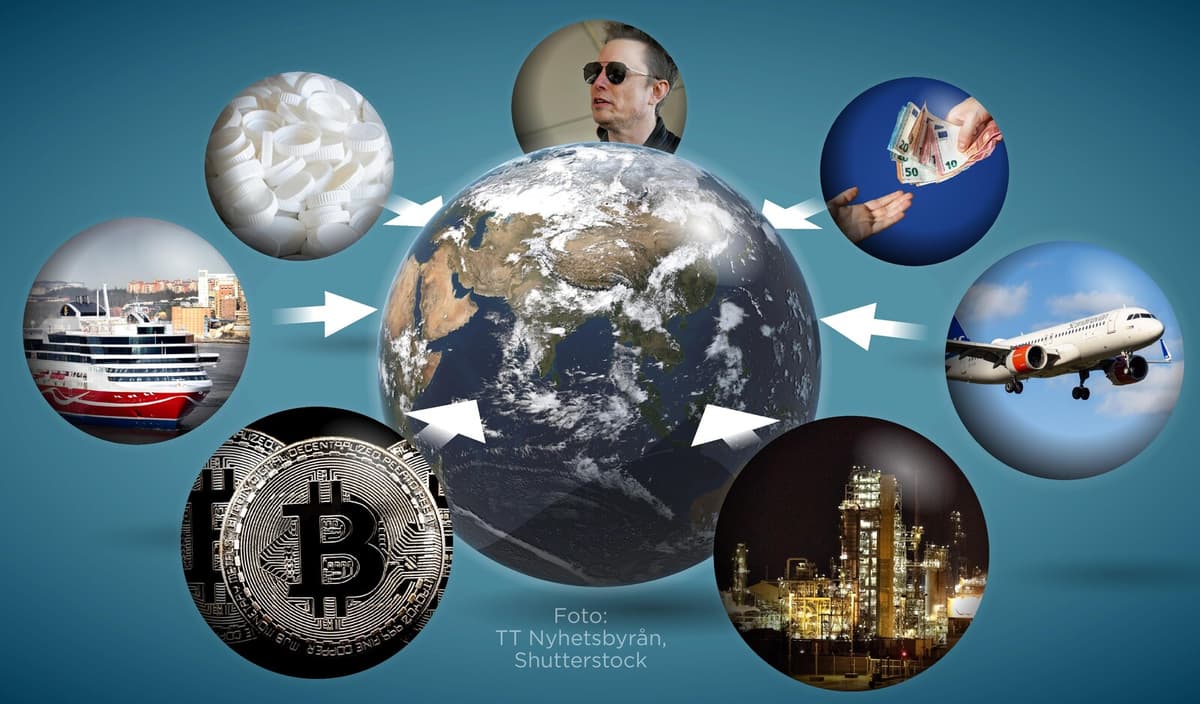Money is central at this year's climate summit COP29 in Baku. To finance poor countries' climate efforts, at least one billion dollars is estimated to be needed annually – some estimate the figure to be even higher. In addition to contributions and loans from individual countries and, for example, the EU, various taxes and fees could finance the projects.
This type of discussion would have been completely taboo just five years ago. Now, at least, they are taking place, says Katherine Brown, researcher at the Stockholm Environment Institute, who, however, does not expect any breakthrough at this year's climate meeting.
Here are some of the proposals:
1. Fossil fuel tax
Several different fees can be imposed on oil, coal, and gas companies. One can imagine a price on what is extracted from the ground – high taxes or a minimum corporate tax.
It is based on a "polluter pays" principle, says Duncan Moss at the Global Solidarity Levies Task Force (GSLTF), a coalition led by France, Kenya, and Barbados that is investigating several fees.
A cost of each barrel of oil, ton of coal, or cubic meter of gas could, for example, lead to 210 billion dollars in annual revenue.
2. Maritime tax
Work is already underway within the International Maritime Organization (IMO) to introduce a carbon dioxide fee, where each ton of emissions costs a certain amount. Such a fee would generate 127 billion dollars annually – more than what rich countries currently give to poor countries in climate financing.
3. Tax on financial transactions
Several countries in the world have taxes on financial transactions, so-called FTT. A proposal is 0.1 percent on all stock and fund trading and 0.01 percent on derivatives. It could generate hundreds of billions of dollars annually. A calculation from 2019 landed on around 327 billion dollars.
One builds on an existing precedent in areas that are currently under-taxed, says Moss.
4. Air travel tax
The proposal from GSLTF focuses on fuel, with an additional surcharge on luxury tickets, private jets, and frequent flyers. An air travel tax could generate revenue of between 19 and 164 billion dollars, depending on how it is implemented. In Sweden, there is already an air travel tax, which the government has chosen to abolish from the middle of next year.
5. Plastic tax
The EU introduced a plastic tax on non-recycled plastic packaging in 2021. It generated 7.2 billion euros last year. GSLTF states that a tax on production of 60–90 dollars per ton could generate up to 35 billion dollars annually.
6. Crypto tax
The creation of cryptocurrencies like bitcoin is energy-intensive. According to the IMF, a tax of 0.089 dollars per kilowatt-hour could reduce both emissions from the sector and generate 5.2 billion dollars annually.
7. Billionaire tax
A wealth tax on the world's richest dollar billionaires of 2 percent could generate 250 billion dollars annually and is something that Brazil proposed last summer. The tax would affect around 3,000 people in the world.






